MOVIE INTERVIEW – We recently watched the Hungarian film titled “Mastergame” and had the opportunity to sit down with Barnabás Tóth, the director of the film.
Gergely Herpai: The first thing that came to mind about the film is that it can be categorized into various genres and borrows elements from them. Like a thriller, in terms of narrative a mystery, or using shocking twists typical of classic horror films. Which genre do you feel your film is closest to?
Barnabás Tóth: Perhaps most closely to a psychothriller, but indeed, it has elements that remind us of other genres. There is also a strong romantic thread, which becomes more pronounced towards the end. The film itself is ninety minutes long, and for seventy-five minutes, the audience will be watching a psychothriller, operating under the rules of that genre. Everything from the musical score, the visual world, the acting, to the editing evoke a thriller. It can also be considered psycho because it’s based on Zweig’s chess novella, which takes place in a fractured mind, driven mad by chess in a prison cell, resulting in a visual feast, which we used, albeit in a restrained manner.
GH: The film’s release was quite close to October 23rd. Did you try to align it more with this date?
BT: It was a consideration, yes, but we aimed to be closer to November 4th (the interview was conducted on November 7th – Ed.), which is now the national day of remembrance for the suppression of the revolution. The film essentially starts with a failed revolution (so there’s no “heroic” thread in the film, at least not in a revolutionary sense). A young couple barely manages to leave Budapest by train. The November 9th premiere is more closely related to November 4th.
GH: Do you think psych thrillers have a future in Hungary? They haven’t had much of a past here, although there was “Strangled” with Károly Hajduk, but this genre is still quite underdeveloped in our country…
BT: It’s hard to say… There is a current demand for genre films, more so than maybe 20 years ago, but it’s still a challenging question. Personally, I’m not planning to direct such a film next, unless it’s an irresistible offer, you know, “Never Say Never”. Everything can be done well or poorly. I’m really curious if Hungarian viewers will trust a film packaged as a psychothriller. This could either deter or encourage others to venture into this genre. “Control” was a film that did this, a lighter, funnier, more “pop” film (in a good way) – a real reference, milestone, and one of my favorite Hungarian films – which was about a fractured mind and had a twist at the end, and it was a great success.
GH: From the trailer, I didn’t quite get the impression that it would be a psych thriller. How much do you want to make this clear to prospective viewers, for example, in your marketing?
BT: In terms of marketing, we stuck to two things, firstly, highlighting the lead actors, as they are popular, recognized, and beloved. Secondly, since Hungarian viewers don’t necessarily trust Hungarian films – a well-known fact, and I feel the same – we wanted to distinguish ourselves by hiding behind a genre, even if we sometimes “peek out” from it. Besides, it’s crucial that even if the film adheres to the rules of a psychothriller, it’s a Hungarian film that “winks” at the audience, with elements of ’56, the battle of good and evil, and metaphysical and philosophical layers. So, viewers get much more – if they want. If not, they will just experience the suspense.
GH: Was the choice of Gergely Váradi, the lead actor in the iconic series “The Informant,” intentional for this film set in ’56?
BT: Not really, because when I decided on Geri, “The Informant” wasn’t even in the picture. Interestingly, when I wanted to shoot with him in the summer, he mentioned he was filming and when I called the producers, they confirmed he had to shoot for 18 weeks for “The Informant.” I actually chose him because of “Guerrilla,” a film by György Mór Kárpáti, where he is the lead. It’s a film about the revolution of ’48, and both the film and his performance are excellent. Geri has the true makings of a film actor (which the creators of “The Informant” also recognized): his face, voice, acting, eyes, he can really carry a film, and I needed such a face, such an actor.
GH: Returning to the thriller genre: we see a pretty intense action scene in the film, and Bori Péterfy mentioned that no stunt doubles were used – how did you manage to shoot such a brutal action scene without stunt doubles?
BT: During rehearsals, we used a stunt double. József Kovalik (Joe) and his team prepared both Gergő and Bori for days. It wasn’t just about the precise choreography (which Joe worked out) but also about their physical safety (back, chest, knees, etc.) during the fight. However, on the film screen, you only see the two of them. It was great directing this part, and they really enjoyed it. Both Bori and Geri are athletic. We shot this fighting scene in a train restroom, where they destroy each other and the setting, for an entire day. When everyone from the crew was exhausted and said, “That’s it, everyone can go home,” Bori and Geri were disappointedly asking, “That’s it??? But we just got into it!” So, they really enjoyed it and loved doing it.
GH: Could this action scene be a precursor to making a Hungarian action film similar to the Bourne series, perhaps with these actors or others?
BT: I would love to if the story is compelling! Although I must admit, action for the sake of action doesn’t interest me much. It’s a hassle to shoot and can be quite boring from a director’s perspective.
GH: Yet, looking at the final result, one wouldn’t think so…
BT: You’re miles away, not in control, but the stunt coordinator is. You watch the monitor – it’s either good or it’s not, but you have to edit it anyway – so this part isn’t technically appealing to me. But editing and watching it is much better. And you feel proud that we made this. But I would still only do it if the story serves it and emotionally draws me in. I really like action movies like “Taken,” where the motivation is clear – the protagonist’s daughter is kidnapped. It’s a simple, primitive setup, but if well-written, why not? I’d gladly dive into it.
HG: Much of the film takes place on a train. How challenging was shooting there, and did you watch any train-themed films for inspiration?
BT: I watched many films for “Mastergame,” not just train-themed, but also chess-themed, related to ’56, and those with shocking plot twists. Among the train films were Kenneth Branagh’s “Murder on the Orient Express,” a black-and-white Polish film “Night Train,” Lars Von Trier’s “Europa,” and the Korean “Train to Busan.” I’ve directed a film titled “On the Train,” and starred in “The Boy on the Train.” So, trains are somewhat a theme for me. Regarding the challenge: it seems daunting at first, but it’s an advantage in the end. Because you’re not shooting in a city or building complex, but in a carriage. It’s more concentrated, focused, limited, but you have to make the most out of it. We knew we had to build it and go to a studio, as it would have been maddening to be shuffled around in historical carriages. We replicated these carriages, built them, brought everything from an old carriage and rebuilt it, then returned it to the Hungarian State Railways. We constructed it so that every wall could be removed, allowing us to move the camera in a way that the audience wouldn’t notice, but still keeping the scenes dynamic. This type of shooting is good for an acting troupe, a bit theatrical. I like such enclosed locations; my short film “Whispering” also takes place in a translation booth, and “Replan” in a car. I enjoy shooting this way, focusing the camera on faces, on emotions.
Interview: Gergely Herpai (BadSector)

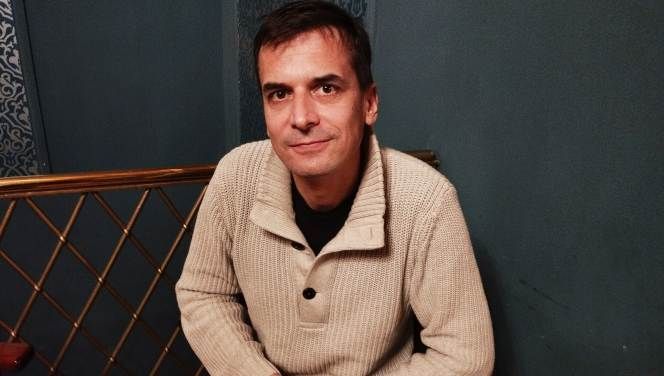
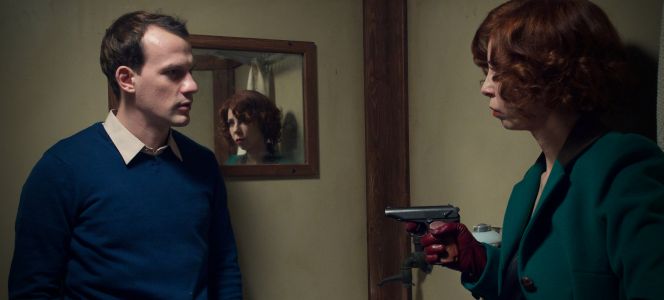

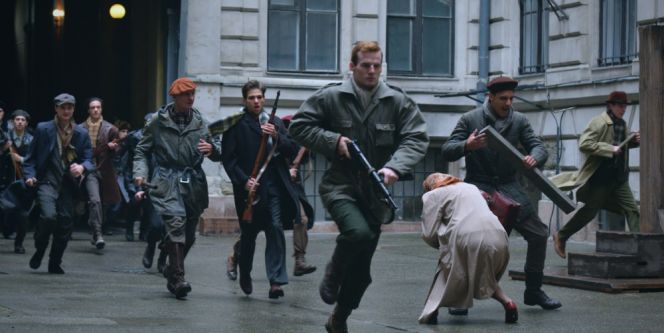

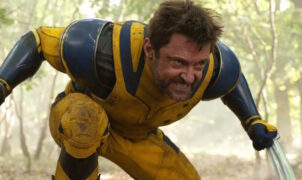
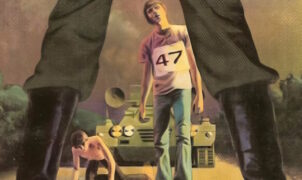



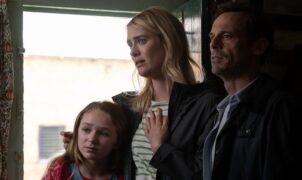

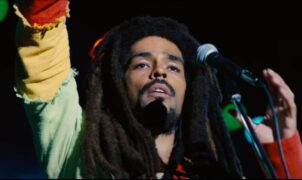

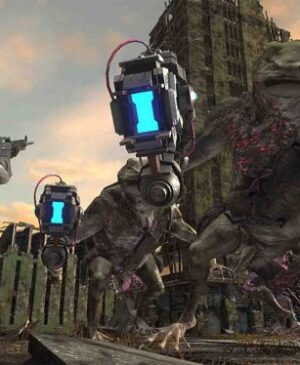


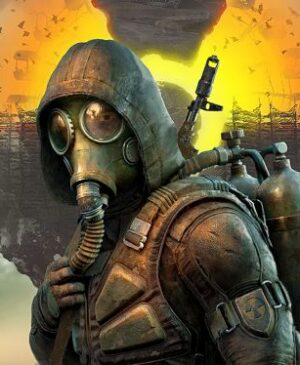
Leave a Reply